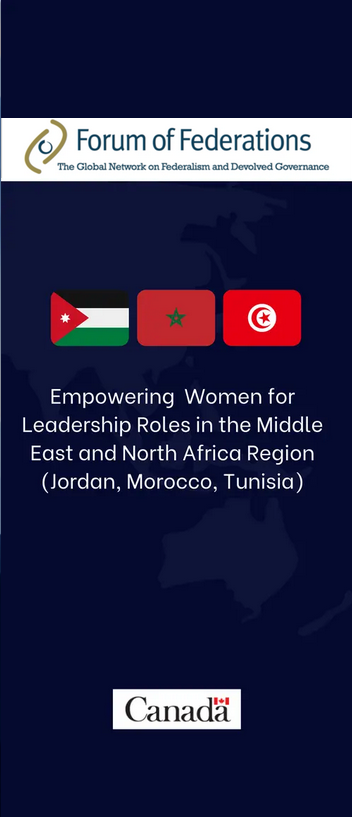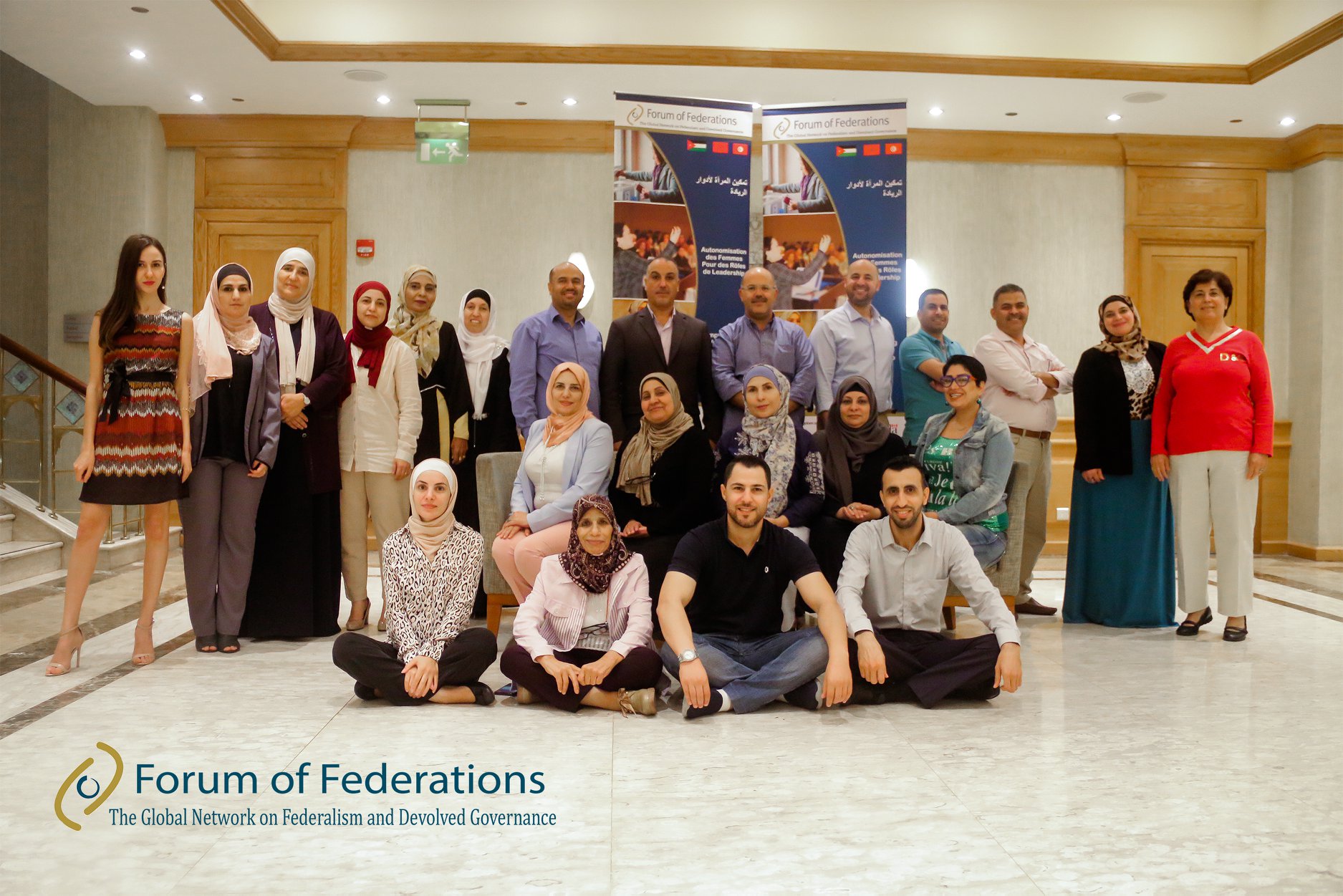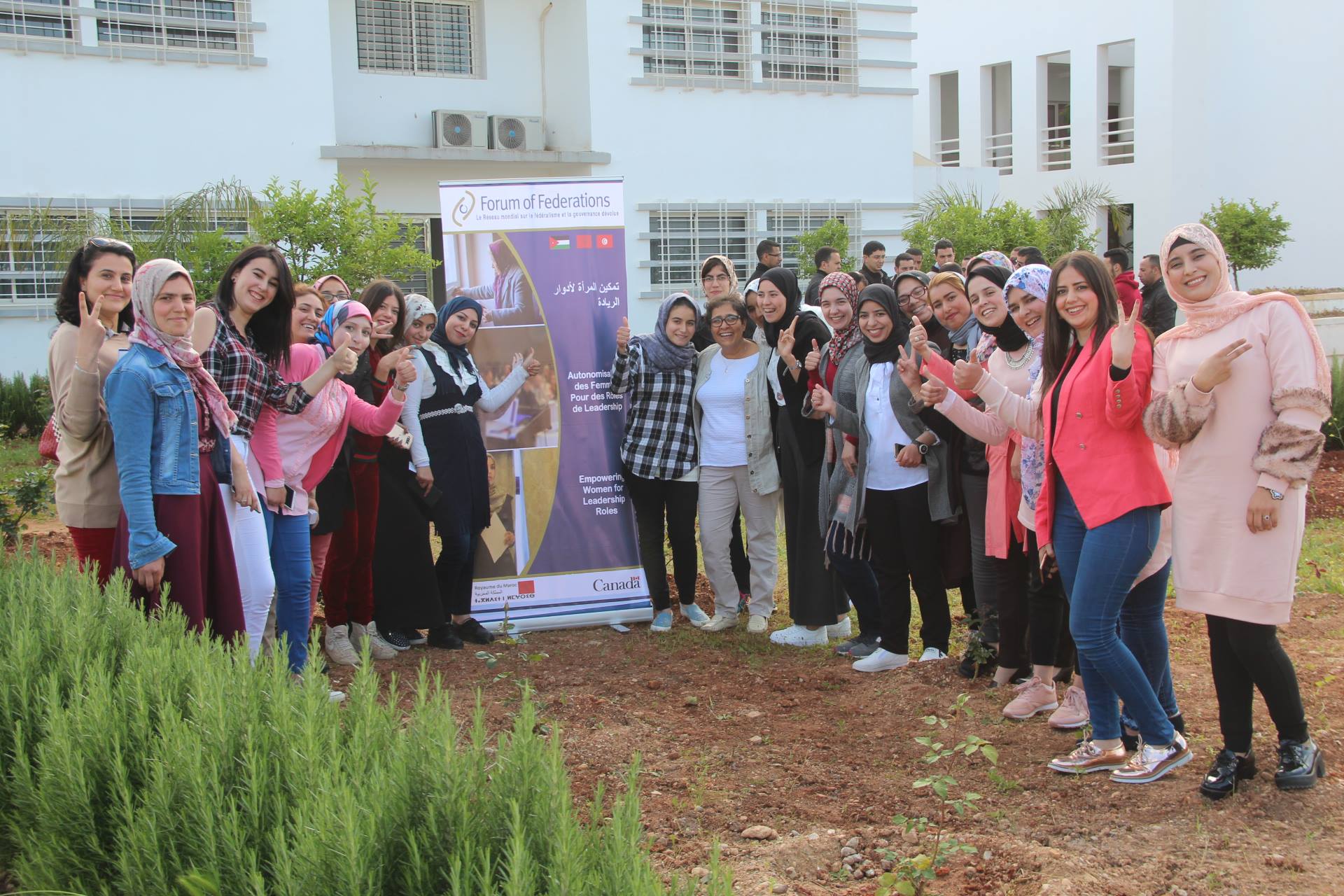MENA Program: Empowering Women for Leadership Roles in the Middle East and North Africa Region (Jordan, Morocco, and Tunisia)
[MENA]
Program Overview and Major Objectives
The MENA program for women’s leadership, funded by Global Affairs Canada, was initiated in 2016 as a seven-year project. Its goal is to empower women and advance inclusiveness in governance in Jordan, Morocco, and Tunisia. To achieve this, the project aims to increase women’s capacity to engage in leadership roles and governance processes as well as enhance women, men, and gender-equality allies’ ability to influence policies around inclusiveness.
What the Forum is Doing: Principle-Based Strategic Approach

- Provision of leadership skills training to enhance the leadership capacities of women and increase their confidence to assume leadership roles
- Facilitation of networking between the targeted female stakeholders and established women leaders to enable knowledge transfer and experience sharing on transformational leadership, governance, and policies.
- Development and dissemination of materials to foster increased awareness on women’s leadership and empowerment amongst the citizens of the target countries.
- Enhancement of the capacity of local organizations and actors to train and impart knowledge in women’s leadership and empowerment to fellow citizens.
What the Program Aims to Achieve: Results

- Strengthen leadership skills of established women leaders, including legislators, public servants, local government, civil society, business, unions, and academia, and further their understanding of democratic processes and governance systems.
- Train future leaders by developing skills, starting with middle-level administrators and union members. Local populations will also be targeted to encourage more women to support political parties and become politically active.
- Increase the number of women applicants for leadership positions within their administrations.
- Increase public awareness through knowledge dissemination activities and an attitudinal shift amongst the population, both male and female.
- Strengthen capacities of institutions, including Governmental, non-governmental, CSOs, media, trade unions, and academic Institutions, to positively influence policies and develop programs that will help achieve inclusive governance.
Historical Context

Although there have been challenges in achieving gender equality, numerous strides have been made over the years. Despite this progress, it is crucial to maintain an upward trajectory and eradicate social, cultural, and religious strictures that aim to decrease or sustain the present number of women representatives and women who are politically active, empowered, and equipped to take up leadership roles. In its mandate to advance gender equality and inclusive governance, the Forum of Federation aims to help achieve these goals, hence the Empowering Women for Leadership Roles in the Middle East and North Africa Region (Jordan, Morocco, and Tunisia) project.
Stay up-to-date on the MENA Program:






